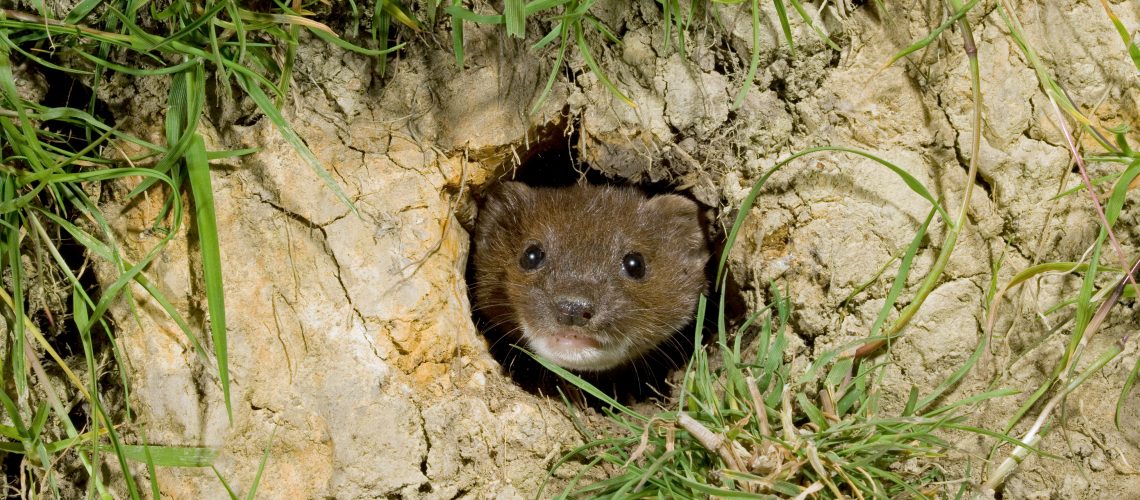
For the last year, we’ve been attempting to get to grips with how to monitor weasels and stoats.
Although both species are considered to be widespread and common in Britain, little is known about their abundance and population trends outside of game estates, and there is currently no reliable, cost-effective method to monitor live weasels and stoats. Consequently, both species are listed as data deficient.
Last year, we trialled the ‘Mostela’ as a method for detecting weasels and stoats. The Mostela comprises a wooden box with a plastic tunnel running through it and a camera trap housed inside to record footage of any animals that enter (for full description of the design, see here). It was designed by the Dutch Small Mustelid Foundation and has been used to successfully detect weasels and stoats in the Netherlands.
We trialled the Mostelas at three sites and, encouragingly, weasels were detected in Mostelas at all three of these sites. Stoats were only detected at one site, despite being seen at the other two sites during the study. Along with our target small mustelids, the Mostelas were also visited by plenty of other small mammals (mice, voles and shrews), rabbit, grass snakes, adders and even American mink.
Based on our pilot study and the success achieved in the Netherlands, the Mostela shows promise for future surveys and research, particularly on weasels. This spring, we will be trialling the Mostelas in Ireland for the first time, to assess their efficacy at detecting Irish stoats. Watch this space!
The results of our pilot study have recently been published in Mammal Communications, The Mammal Society’s online, open access journal. You can download the paper for free here.
Watch this compilation of some of the best footage we recorded in the Mostelas!